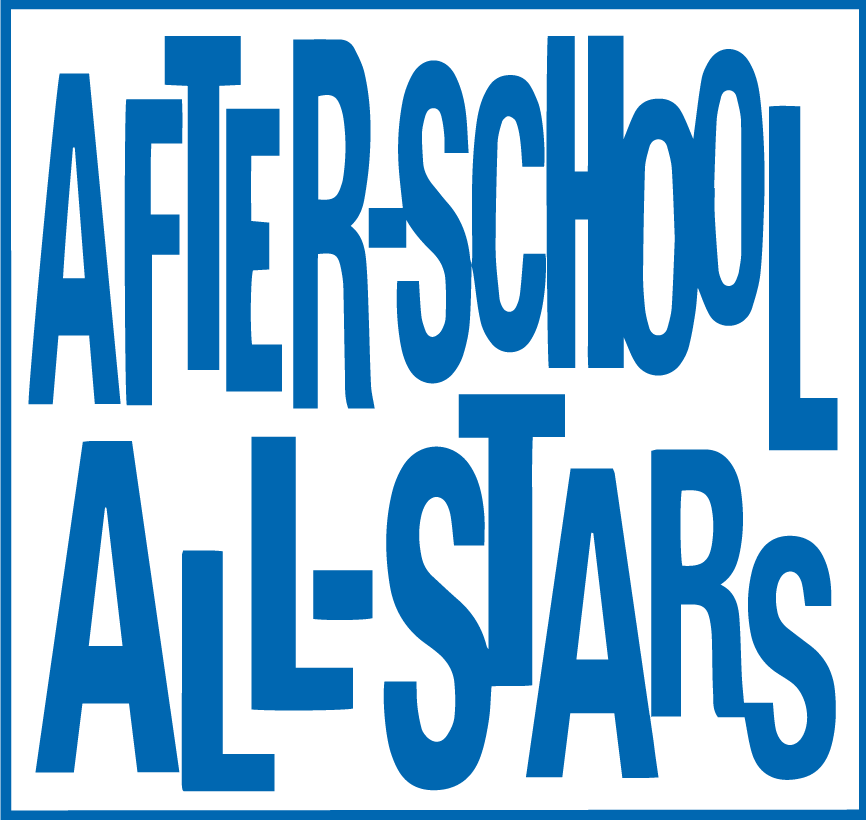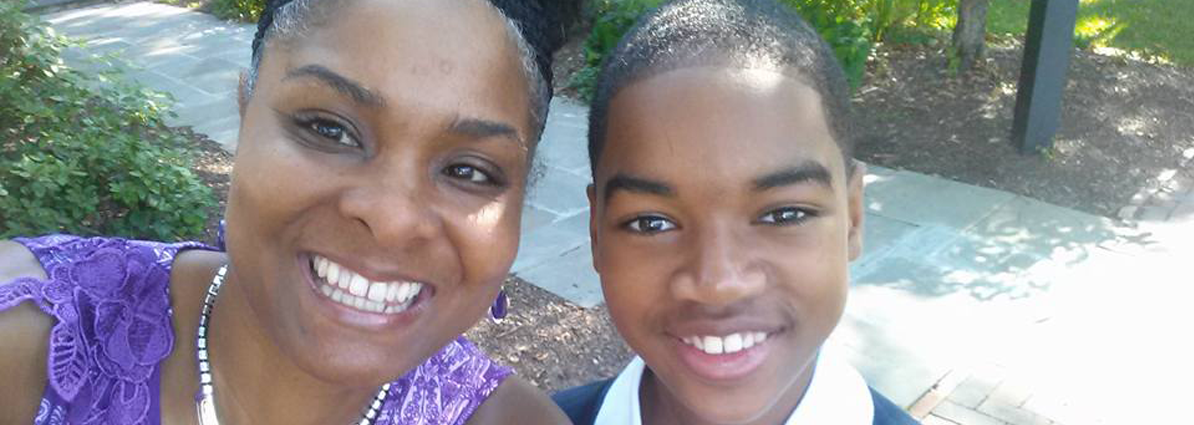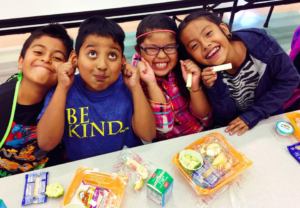About three years ago, After-School All-Stars Atlanta (ASAS Atlanta) began offering a hot supper program with the intention of instilling healthy habits in our kids. The partnership with Georgia State University supports the program. ASAS Atlanta and GSU have been working with the Department of Nutrition’s graduate students to offer nutrition classes and laboratory cooking time. Eager to expand the program, we applied for and received a grant to provide hot supper as added service to our students.
As the program wound down each evening, every student was now able to sit down to a hot meal alongside peers and mentors. 100% of our students qualify for the Federal Free or Reduced Price Lunch program, which is an indicator of family income at or below the poverty line, so getting a healthy dinner on the table is a challenge for many of our families.
Amadou Bah, for instance, is the son of African immigrants. He grew up with five brothers and sisters in a two-bedroom apartment. Despite the poverty around him, Bah excelled in school and in his Valedictorian address, shared that his participation in After-School All-Stars in middle school was instrumental in his success. Today, Bah attends Stanford University on a full academic scholarship, an educational opportunity he certainly wouldn’t be able to take advantage of without the financial aid.
In addition to students like Bah who come from families struggling to make ends meet, where living quarters and cramped and there are many mouths to feed, we also serve students whose families depend on local homeless shelters. We knew that poverty was experienced to varying degrees. What we didn’t know, however, was the extent of the poverty. We were shocked when a groundswell of students began reporting that this hot supper was their last meal until they returned to school the next day, where they’d receive a free or reduced-cost breakfast and lunch. Our students, it turned out, weren’t getting supper at home.
The hot supper program is a sharp reminder of the problematic environmental factors our student face, like food insecurity. ASAS Atlanta listens and responds to community needs.
We’re working to respond to these socio-economic factors in other aspects of our work. At our culminating family events, students invite their families to a buffet dinner and performance to showcase the skills they have honed. The buffet dinner encourages families to engage with the program and provides a hot meal to parents, grandparents, and other siblings might not get otherwise.
Our programs also respond to the students’ expressed needs and interests while folding in our own goals for them (holistic well-being, nutrition education, etc.). STEP classes and Girl Talk (discussions about sexual harassment) are two examples of enrichment classes born from “student voice and choice” a fundamental tenet of our work. By offering enrichment classes that students are excited about, we encourage attendance. Many of the courses offer field trips, a great motivator to students, as they cannot attend if they have not participated in the program at least 67% of the time.
This responsiveness has, in turn, developed a commitment in the students themselves to seek out and address the issues they see. Brothers Uwezo and Askari Flewellen, ASAS alums and current Georgia Tech and Georgia State University students, took the initiative to raise over $2,500 for our program and positively students like themselves. Jasmine Johnson, another alum, graduated from Georgia State University, became a teacher, and returned to work for After-School All-Stars every afternoon.
Our program is being judged by much greater terms—the health and prosperity of our greater community. We are not only making a direct impact on the 3000 students actively engaged in the program today, but we are responding to and impacting schools, communities, and future generations of Atlantans.



